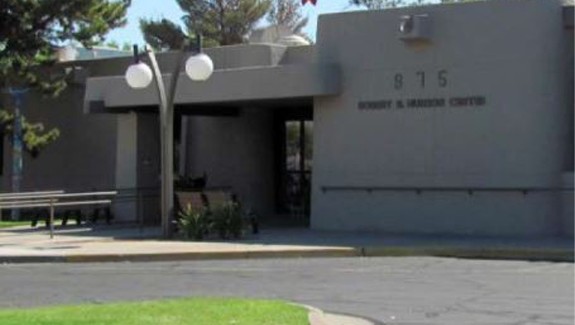The National Weather Service’s El Paso Office forecasts daytime temperatures exceeding 100 degrees for several days this week. The City of Las Cruces, in response, will open cooling stations through at least Saturday, Aug. 9, 2025 to offer relief for residents who wish to escape the heat.
A cooling station is a place that offers temporary shelter from the heat for the elderly, high-risk residents and the public. Residents are encouraged to call cooling stations beforehand to verify they are open.
The following cooling stations will be open through Friday, Aug 8, 2025 with the times listed:
Frank O’Brien Papen Community Center
304 W. Bell Ave.
(575) 528-2455
8 a.m. to 5 p.m.
Henry R. Benavidez Community Center
1045 McClure Road
(575) 541-2006
10 a.m. to 5 p.m
Meerscheidt Recreation Center
1600 E. Hadley Ave.
(575) 541-2563
8 a.m. to 9 p.m.
Mesilla Valley Intermodal Transit Terminal
300 W. Lohman Ave.
(575) 541-2500
6:30 a.m. to 10 p.m.
Munson Center
975 S. Mesquite St.
(575) 541-3000
8 a.m. to 5 p.m.
Sage Café
6121 Reynolds Drive
(575) 528-3151
9 a.m. to 5 p.m.
The following cooling stations will be open from on Saturday, Aug 9, 2025 with the times listed:
Meerscheidt Recreation Center
1600 E. Hadley Ave.
(575) 541-2563
9 a.m. to 4 p.m.
Mesilla Valley Intermodal Transit Terminal
300 W. Lohman Ave.
(575) 541-2500
8:30 a.m. to 4:30 p.m.
Residents are reminded to drink plenty of fluids, stay in an air-conditioned room, stay out of the sun, and check on relatives, neighbors and pets. Also, those working or spending time outdoors should take extra precautions. When possible, strenuous activities should be limited to early morning or evening hours.
Residents should also be aware of the signs and symptoms of heat exhaustion and heat stroke. Heat exhaustion symptoms include headaches, dizziness, lightheadedness, or fainting; weakness and moist skin; irritability or confusion; and an upset stomach. Heat stroke symptoms include: dry, hot skin with no sweating; mental confusion or loss of consciousness; and seizures or convulsions. Heat stroke is an emergency and residents should immediately call 911 if anyone is experiencing these symptoms.
People at a higher risk of heat-related illness include: infants and young children; older adults; people with disabilities; anyone with chronic heart or lung problems; overweight persons; those who work outdoors or in hot settings; users of some medications, especially some drugs for mental disorders, movement disorders, allergies, depression, and heart and circulatory problems; and isolated persons who won’t know when or how to cool off or call for help.
Wear lightweight and loose-fitting clothing when possible. To reduce risk during outdoor work, the Occupational Safety and Health Administration recommends scheduling frequent rest breaks in shaded or air-conditioned environments.
Anyone overcome by heat should be moved to a cool and shaded location as quickly as possible.


